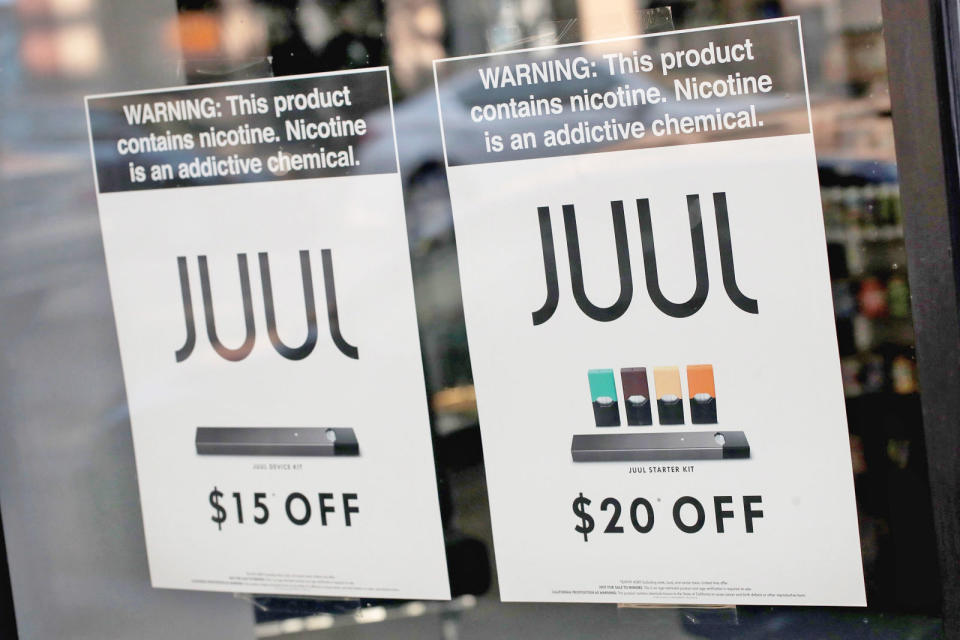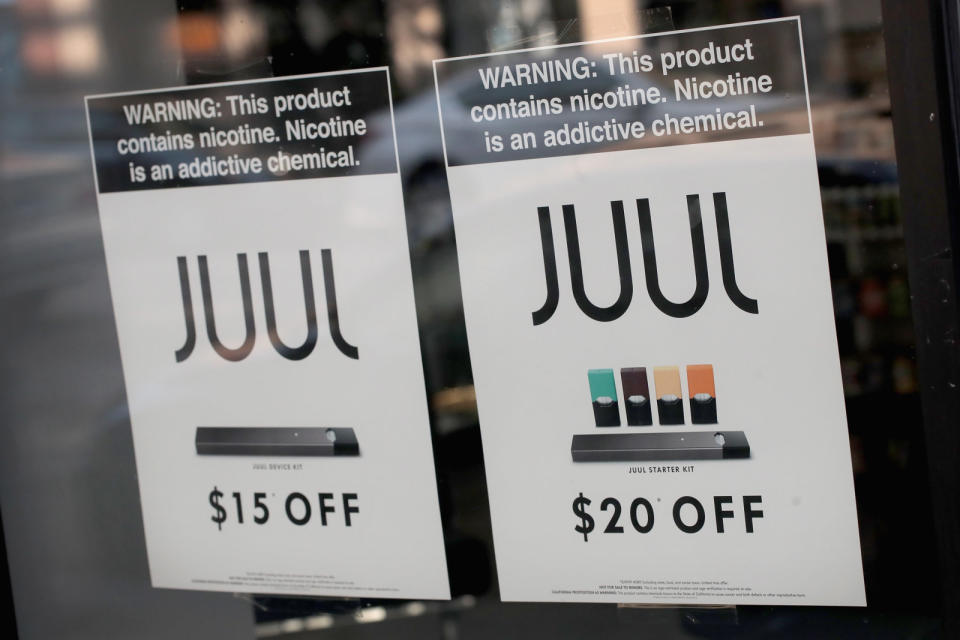FDA seizes marketing documents from e-cig maker Juul
The agency is trying to crack down on underage vaping.
In its latest move against e-cigarettes, the US Food and Drug Administration has seized "thousands of pages of documents" from e-cig maker Juul. In a statement to CNBC, the FDA said the action was taken in order to obtain "further documentation related to Juul's sales and marketing practices, among other things." The documents were seized last week during a surprise inspection of the company's San Francisco headquarters.
Last month, the FDA gave e-cig makers like Juul, Vuse and blu had 60 days to prove that they had legitimate plans to curtail underage use of their products, and in April, it asked Juul for product marketing materials as well as research on e-cig appeal among young people. While the agency has admitted that the devices might be an effective means of helping adults to stop smoking traditional cigarettes, it has ramped up its efforts to address underage use of the products. "It's now clear to me, that in closing the on-ramp to kids, we're going to have to narrow the off-ramp for adults who want to migrate off combustible tobacco and onto e-cigs," FDA Commissioner Scott Gottlieb said in a statement at the time.
Among the FDA's efforts to stop kids from using e-cigarettes is an aggressive ad campaign called The Real Cost, which aims to scare children away from vaping. Some have questioned if the measures the FDA is taking to prevent underage use have gone overboard.
We don't have a lot of research yet on e-cigarettes and their health effects, but in general e-cigs tend to have far fewer toxic chemicals than cigarettes, and there's some evidence that users have lower levels of those chemicals in their bodies than cigarette smokers do. On the other hand, some studies are finding that e-cigs may have impacts on the cardiovascular system that are similar to those of traditional cigarettes, putting users at risk of developing heart-related issues in the long term.
The FDA loosened regulations on vaping products last year, but it may introduce new rules if e-cig makers can't convince the agency that they're doing their best to stop underage use. The Centers for Disease Control and Prevention is expected to release data this year that will show a sharp increase in high school-aged use of e-cigs and Gottlieb has called that rise "disturbing and startling." However, until that data is available, we won't know if it's documenting regular use or also taking occasional or even single use into account. Further, until more long-term data is collected, we won't know if this is a blip driven by novelty or it is in fact the "epidemic" that the FDA has described.
Earlier this year, Juul announced that it had committed $30 million for its fight to stem underage use and was considering features like age verification and geofencing to dissuade kids from using its products.
Update 10/2/18 1:45PM ET: A spokesperson for Juul sent Engadget the following statement from CEO Kevin Burns:
"We are committed to preventing underage use, and we want to engage with FDA, lawmakers, public health advocates and others to keep Juul out of the hands of young people. The meetings last week with FDA gave us the opportunity to provide information about our business from our marketing practices to our industry-leading online age-verification protocols to our youth prevention efforts. It was a constructive and transparent dialogue. We've now released over 50,000 pages of documents to the FDA since April that support our public statements. We look forward to presenting our plan to address youth access in the 60-day time frame as outlined by FDA. We want to be part of the solution in preventing underage use, and we believe it will take industry and regulators working together to restrict youth access."



